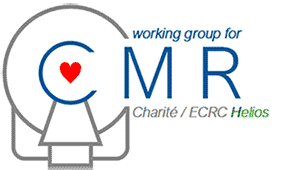Cardiac stress tests are used to detect any reduced blood supply to the heart muscle through the coronary arteries.
There are two options available for stress-testing of the heart. Both utilize the administration of a drug (Adenosine or Dobutamine) via a peripheral vein. In principle, two venous accesses are created for these examinations. Both options are described below.
Please do not forget that you are advised to have this examination only when there is a suspicion of being high risk of heart disease. Both the physician and us then assume that these examinations pose less danger to you than your possible disease.
We perform these examinations daily (at least 6-8 times) and follow a world-wide established stress-protocol.
Adenosine Perfusion stress-test
An Adenosine stress-test can be performed to check the blood supply to the heart muscle (called perfusion) through the coronary arteries. Before the examination, it is important that you do not consume any caffeinated beverages or foods at least 24 hours prior, this includes: coffee (even decaffeinated), black, green, or white tea, cocoa, or chocolate products as well as Coca-Cola and any energy drinks!
You can take your medication (including Beta-blockers) as usual before the examination. The examination lasts approximately 45 minutes, and the preparations necessary before the examination are the same as those for a normal MRI examination with the exception of creating a second venous access through which the Adenosine is administered. The contrast medium is given via the other venous access.
For patients with known asthma or COPD, we use the drug Regadenoson instead.
The drugs Adenosine/ Regadenoson cause healthy vessels to dilate. If there are constrictions within the coronary arteries, less oxygen is available for the heart muscle area supplied by these vessels (so-called “steal” phenomenon). In addition to visible changes seen by magnetic resonance imaging in the corresponding image sequences, this may also cause physical symptoms i.e., a feeling of pressure in the chest or head, difficulty breathing or even shortness of breath, or a heat sensation. These complaints typically disappear immediately after finishing administration, at the longest after 2-3 minutes.
Moreover, cardiac arrhythmias (so-called AV blocks) may occur during the examination. Nevertheless, during the administration of the drug, your ECG will be continuously closely monitored by the evaluating physician in order to counteract any complications that may occur.
Dobutamine Perfusion stress-test
A Dobutamine stress-test is performed to check the blood supply to the heart muscle through the coronary arteries. Unlike the Adenosine Perfusion stress-test, Dobutamine stimulates your heart to pump more blood by increasing your heart rate (your heart beats faster).
To undergo this stress-test, it is essential that a doctor fills out and discusses the information sheet with you at least 48 hours prior to the examination.
Before the examination, if you are taking any Beta-Blocker medication, it is important to pause it within 48 hours of the examination, otherwise the examination will not provide efficient diagnostic information. In addition, you should avoid any heavy/greasy food and excessive drinking at least 3 hours before the examination.
The drug is administered during the examination via venous access (IV) as a continuous infusion over several stages, with increasing drug doses. If the Dobutamine does not cause a sufficient increase in heart rate, the administration of an additional drug, Atropine, will be necessary.
Before the examination- as with the Adenosine Perfusion stress-test- there will be two venous accesses created: one for the drug and one for safety reasons. Even though perfusing the heart with Dobutamine is a long-established procedure, this examination can still potentially be dangerous due to a variety of physical symptoms. During the administration of the drug, you will experience and increased heartbeat which will continue to increase as the dose of the drug increases. It is a possibility that you may experience pressure in your chest (angina) during the examination. If this occurs, please let us know immediately. Furthermore, it may result in potentially life-threatening cardiac arrythmias. In this unlikely event, we will have all necessary equipment and medication ready at hand to resolve this complication immediately. Since the drug-induced stress on the heart aims to cause a reduction in blood flow to the heart muscle, it is possible, yet extremely rare, for a heart attack to occur during the examination. A drop in blood pressure may also occur which may be represented as a feeling of dizziness.
During the entire examination, you will be under close supervision of two highly trained and experienced cardiologists who will continuously monitor you, your ECG, and the movement of your heart. The examination lasts approximately 45-60 minutes. Following the examination, you will need to remain in our clinic for blood pressure monitoring for 1-2 hours



